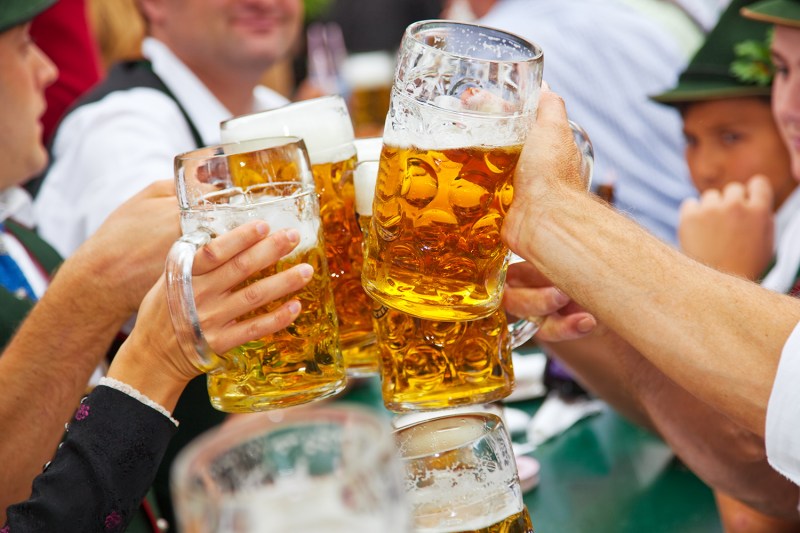
Most inhabitants of the Earth know that beer is a big deal in Germany. So much so, in fact, that the northern European nation is responsible for a number of signature styles, from helles to hefeweizen. This is the suds-soaked land of Oktoberfest and boisterous beer halls, after all.
Whether you’re planning a trip to Bavaria or the German aisle of your favorite bottle shop, it pays to know a little something about this beer-loving nation’s major categories. You could spend a lifetime studying the number of styles and how they differ based on history, regionality, and more, but you probably don’t have time for that. So, get your steins ready, here’s the 101.
Here are eleven of the most popular styles you should know about.
Berliner-Weisse
This wheat beer has made a come back as of late, especially among those looking for lower-alcohol options. It’s a pale and pucker-y number, great for those who appreciate sour beers.
Dopplebock
This mighty beer of Munich fame is basically an imperial version of standard bock. In its formative years, the beer was dubbed “liquid bread” by the Friars when they fasted. These rich and malty beers can exceed 10% ABV, show candied fruit flavors, and offer very little in the way of hop influence.
Dunkel
A dark lager, dunkel means “dark” in German. The Munich malts give the beer its dark hue but the ABV stays pretty dialed in, often around 4-6% by volume. These are the popular dark beers that get the north and west corners of Germany though their dreary winter months.
Hefeweizen
Another popular wheat beer out of Germany, hefeweizen is incredibly refreshing. In many ways it’s the OG hazy beer, an unfiltered and yeasty beer with a very light and bright color. It’s fermented in a way that can often produce ester-y flavors like banana or even bubble gum.
Helles
A malty pale from Bavaria, helles is generally refined and immensely drinkable. Golden in color, these beers are balanced, round, and floral. And with a pretty moderate ABV (usually around 5%), you can enjoy them all day.
Kolsch
Purists will tell you that real kolsch can only come from the Cologne region. That’s technically true, but brewers are making great riffs of their own all over the planet, especially here in the states. It’s a beer with a clean mouthfeel and crisp build. It’s also a bit of a hybrid, top-fermented in ale fashion, while finished cold much like a lager.
Maibock
A stronger pale beer historically brewed in the spring, maibock is also referred to as helles bock or heller bock. It’s typically around 7% ABV and lighter in color and a bit more hoppy than most beers in the bock family.
Marzen
The toast of Oktoberfest, this malty lager is medium-bodied and comes in a spectrum of colors. It’s a Bavarian classic, generally a bit fuller, sweeter, and less hoppy, akin to an amber ale.
Pilsner
Germany can’t take credit for the pilsner, but it has certainly developed its own take on the style. It’s the most popular beer in Germany, a pale and sometimes hazy beer (when unfiltered) that tends to be a bit more bitter compared to other pilsners, such as Czech-style.
Schwarzbier
A close relative of the stout, schwarzbier is a dark lager made from roasted malt. It tends to clock in at around 5% ABV and offer notes of cacao and coffee. It was first documented in the 14th century in Lower Saxony.


